
|
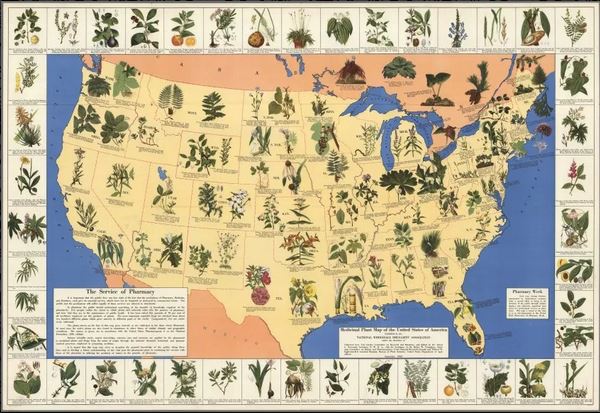
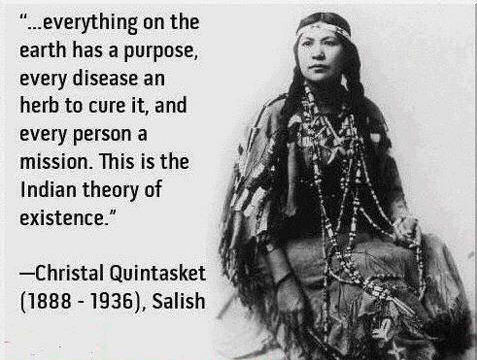
"Silas Marner
was both sane and honest, and as with many
honest and fervent men,
culture had not defined any channels
for his sense of mystery, and so it
spread itself over the proper
pathway of inquiry and knowledge.
He had inherited from his mother
some acquaintance with medicinal
herbs and their preparation, a little store of wisdom which she had
imparted to him as a solemn bequest but of late years he had had
doubts about the
lawfulness of applying this knowledge, believing that herbs could have no
efficacy without prayer, and that prayer might suffice without herbs; so that
the inherited delight he had in
wandering in the fields in search of foxglove and dandelion and coltsfoot,
became to him the
character of temptation.
Among the members of his church there was
one young man, a little older than himself, with
whom he had long lived in
such close friendship that it was the
tradition of Lantern
Yard brethren to call them David and Jonathan.
The real name of the
friend was William Dane, and he, too, was regarded as a shining instance of
youthful piety, though somewhat
given to over severity towards weaker brethren, and
to be so dazzled by his own light as
to hold himself wiser than his teachers.
Whatever blemishes others
might discern in William, to his friend he was faultless; Silas Marner an
impressible self doubting
nature which, at an inexperienced age, admire imperativeness and
leans on
contradiction.
The
expression of trusting
simplicity in Silas Marner's face, heightened by that absence of
special observation,
that defenseless, deer like gaze which belongs
to large prominent eyes, was strongly contrasted by
the self complacent suppression
of inward triumph that lurked in the narrow slanting eyes and compressed lips
of William Dane.
One of the most frequent topics of conversation
between the two friends was assurance of salvation:
Silas Marner confessed that he could never arrive at anything higher than
hope mingled with
fear, and
listened with longing
wonder when William
declared that he had possessed unshaken assurance ever since, in
the period of his
conversion, he had dreamed that
he saw the words 'calling and
election sure' standing by themselves on a white page in the open Bible.
Such colloquies have entranced many
pale faced weavers, whose
unnurtured souls have been
like young winged things, fluttering forsaken in the
twilight.

It had seemed to the naive Silas
Marner that the friendship had
suffered no chill even from his formation of another
attachment of a closer category.
For
some months he had been engaged to
a young servant woman,
waiting only for a little increase to their mutual savings in order to marry;
and it was a great delight to him that Sarah did not object to William's
occasional presence in their Sunday interviews.
It was at this point in
their history that Silas Marner's cataleptic fit occurred during the prayer
meeting; and amidst the various queries and expressions of interest addressed
to him by his fellow members, William's suggestion alone
jarred with the general
sympathy towards a brother thus singled out for special dealings.
He
observed that, to him, this
hypnotic trance
looked more like a visitation of
Satan than a proof of
divine favor, and exhorted his
friend to see that he hid no accursed thing within his soul.
Silas
Marner, feeling bound to accept rebuke and admonition as a brotherly office,
felt no resentment, but
only pain, at his friend's doubts concerning
him; and to this was soon added some
anxiety at the perception
that Sarah's manner towards him began to exhibit a strange fluctuation between
an effort at an increased
manifestation of regard and
involuntary signs of
shrinking.
He asked her if she wished to break off their engagement;
but she denied this: their engagement was known to the church, and had been
recognized in the prayer meetings; it could not be broken off without strict
investigation, and Sarah could render no reason that would be
sanctioned by the feeling of
the community.
At this time the senior deacon was taken dangerously
ill, and, being a childless widower, he was tended
night and day by some of the younger
brethren or sisters.
Silas Marner frequently took his turn in the night
- watching with William, the one relieving the other at two in the morning.
The old man, contrary to expectation,
seemed to be on the way to recovery, when one night Silas Marner,
sitting up by his
bedside, observed that his usually audible breathing had ceased.
The candle, burning low, had
to lifted to see the patient's face distinctly.
Examination
convinced him that the deacon was dead - had been dead some time, for the limbs
were rigid.
Silas Marner asked himself if he had been asleep, and
looked at the clock: it was already four in the morning.
How was it
that William had not come?
In much anxiety he went to seek help, and
soon there were several friends assembled in the house, the minister among
them, while Silas Marner went away to his work, wishing he could have met
William to know the reason of his non-appearance.
At six o'clock, as he
was thinking of going to seek his friend, William came, and with him the
minister.
They came to summon him to Lantern Yard, to meet the church
members there; and to his inquiry concerning the cause of the summons the only
reply was, 'You will hear.'
No thing further was said until Silas
Marner was seated in the vestry, in front of the minister, with the eyes of
those who to him represented God's people fixed solemnly upon him.
The minister, taking out a pocket-knife, showed it to Silas Marner,
and asked him if he knew where he had left that knife?
Silas Marner
said, he did not know that he had left it anywhere out of his own pocket - but
he was trembling at this strange interrogation.
He was then exhorted
not to hide his sin, but to confess and repent.
The knife had been
found in the bureau by the departed deacon's bedside - found in the place where
the little bag of church money had lain, which the minister himself had seen
the day before.
Some hand had removed that bag; and whose hand could it
be, if not that of the man to whom the knife belonged?
For some time
Silas Marner was mute with astonishment:
then he said, God will
clear me: I know nothing about the knife being there, or the money being gone.
Search me and my dwelling: you will find nothing but three pound five of my own
savings, which William Dane knows I have had these six months.'
At this
William groaned, but the minister said, 'The proof is heavy against you,
brother Silas Marner. The money was taken in the night last past, and no man
was with our departed brother but you, for William Dane declares to us that he
was hindered by sudden
sickness from going to take his place as usual, and you yourself said that
he had not come; and, moreover, you neglected the dead body.'
'I must
have slept,' said Silas Marner. Then, after a pause, he added, 'Or I must have
had another visitation like that which you have all seen me under, so that the
thief must have come and gone while I was not
in the body, but out of the body. But, I say again, search me and my dwelling,
for I have been nowhere else'.
The search was made, and it ended - in
William Dane's finding the well known bag, empty, tucked behind the chest of
drawers in Silas Marner's chamber!
On this William
exhorted his friend to
confess, and not to hide his sin any longer.
Silas Marner turned a
look of keen reproach on him, and said, 'William, for nine years that we have
known each other, have you ever known me tell a lie?
But God will clear
me.'

'Brother,' said William, 'how do
I know what you may have done in
the secret chambers of your
heart, to give Satan an advantage over you?'
Silas Marner was still
looking at his friend. Suddenly a deep flush came over his face, and he was
about to speak impetuously, when
he seemed checked again by some
inward shock, that sent the flush back and made him tremble.
But at
last he spoke feebly, looking at William. 'I remember now - the
knife wasn't in my pocket.'
William said, 'I know nothing of what you
mean.'
The others present, however, began to inquire where Silas Marner
meant to say that the knife was, but he would give no further explanation: he
only said, 'I am
sore stricken; I can say nothing.
God will clear me.'
On their return to the vestry there was further deliberation. Any
resort to legal measures for ascertaining the culprit was contrary to the
principles of the Church: prosecution was held by them to be forbidden to
Christians, even if it had been a case in which there was no scandal to the
community.
But they were bound to take other measures for finding out
the truth, and they resolved on praying and drawing lots.
This resolution can be a
surprise to those who are unacquainted with that obscure relgious life
which has gone on in the alleys of our towns.
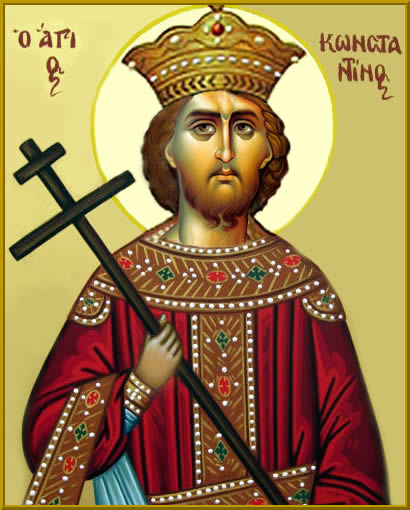
Silas Marner knelt with his
brethren, relying on his own
innocence being certified by immediate divine intervention,
feeling sorrow, for
his trust in man had been cruelly
bruised.
The lots declared that Silas Marner was guilty.
He
was solemnly suspended from church membership, and called upon to render up the
stolen money: only on confession, as the sign of repentance, could he be
received once more within the fold of the church.
Silas Marner
listened in
silence.
At last, when every one rose to depart, he went towards
William Dane and said, in a voice
shaken by agitation - 'The last time I remember using my knife, was when I
took it out to cut a strap for you. I don't remember putting it in my pocket
again. You stole the money, and you have
woven a plot to lay the sin at my
door. If you prosper there is no just God that
governs the earth righteously, but a God of
lies, that bears witness against the innocent.'
There was a general shudder at
this blasphemy.
William said meekly, 'I leave our brethren to judge
whether this is the voice of Satan or not.
I can do nothing but pray for
you, Silas Marner.'
Poor Silas Marner went out with that despair in
his soul - that shaken
trust in God and man, which is little short of madness to a loving nature.
In the bitterness of his wounded spirit, he said to himself, 'She will
cast me off too.'
And he reflected that, if she did not believe the
testimony against him, her whole faith must be upset, as his was.
To
humans accustomed to reason about the forms in which their relgious feeling has
incorporated itself, it is difficult
to enter into that simple, untaught
state of mind in which the
form and the feeling have never been severed by
an act of reflection.
We are apt to think it inevitable that a man in Silas Marner's position
should have begun to question the validity of an appeal to the divine judgement
by drawing lots; to him this would have been
an effort of independent thought
such as he had never known; and he must have made the effort at a moment
when all his energies were turned into
the anguish of disappointed
faith.
An angel who records the sorrows of men as well as their sins
knows many and deep are
sorrows that spring from false ideas for which no man is culpable.
Silas Marner went home, and for
a whole day sat alone, stunned
by despair, without any impulse to go to Sarah and
attempt to win her belief in his innocence.
The second day he took refuge from benumbing unbelief, by
getting on his loom and working away as usual;
and before many hours were past, the minister and one of the deacons came to
him with the message from Sarah, that she held her engagement to him at an end.
Silas Marner received the message
mutely, and then turned away from the messengers to work at his loom again.
In little more than a month from that time, Sarah was married to
William Dane; and not long afterwards it was known to the brethren in Lantern
Yard that Silas Marner had departed from the
village.
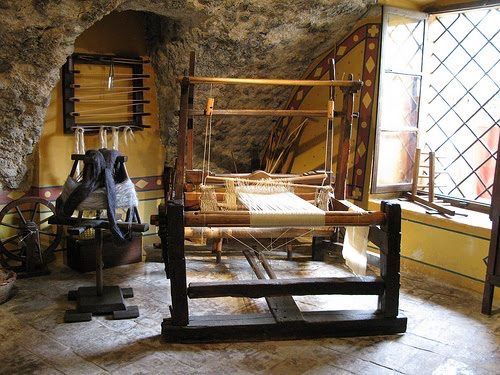
"Year after year, Silas Marner
had lived in solitude,
his guineas rising in the iron
pot, his life narrowing and hardening itself more and more into a mere
pulsation of desire and satisfaction that had no relation to any other being.
His life had
reduced itself to the mere functions of weaving and hoarding, without any
contemplation of an end towards which the functions tended.
The
same sort of process has perhaps been under gone by wiser men, when they have
been cut off from faith and
love only, instead of a loom and a heap of
guineas, they have had some
erudite research, some ingenious
project, or some
well-knit theory.
'Where is the money?' now
took such entire possession of
Dunstan as to make him quite
forget that the weaver's death was not a certainty.
A dull mind, once arriving at
an inference that flatters
an unnatural desire, is rarely able to
retain the impression that the notion
from which the inference started was problematic.
And Dunstan's
mind was as dull as the mind of a
psychopath usually is.
There were only three hiding places where he
had ever heard of cottagers' hoards being found: the thatch, the bed, and a
hole in the floor.
Silas Marner's
cottage had no thatch; and Dunstan's first act,
after a train of thought made rapid by the stimulus of cupidity, was to go up
to the bed; but while he did so, his eyes traveled eagerly over the floor,
where the bricks, distinct in the
fire light, were discernible under the sprinkling
of sand.
But not everywhere; for there was one spot, and one only,
which was quite covered with sand, and sand showing the marks of fingers which
had apparently been careful to spread it over a given space.
It was near
the treddles of the loom.
In an instant Dunstan darted to that spot,
swept away the sand with his whip, and, inserting the thin end of the hook
between the bricks, found that they were loose.
In haste he lifted up
two bricks, and saw what he had no doubt
was the object of his search; for what could there be but money in those two
leathern bags?
And, from their weight, they must be filled with
guineas.
Dunstan felt round the hole, to be certain that it held no
more; then hastily replaced the bricks, and spread the sand over
them.
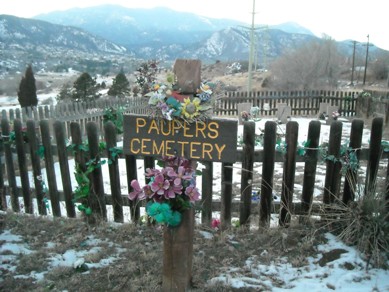
"There was pauper's burial that
week and it was known that the dark haired
woman with the fair child, who
had lately come to lodge there, was gone away again.
That was all the
note taken that Molly had disappeared from the eyes of men.
But the
unwept death which, to the general lot, seemed as trivial as the summer shed
leaf, was charged with the force of
destiny to certain human lives that we know of, shaping their joys and
sorrows even to the end.
Silas Marner's determination to keep the
'tramp's child' was matter of hardly less surprising and iterated talk in the
village than the robbery of his money.
That softening of feeling
towards him which dated from his misfortune, that merging of suspicion and
dislike in a rather contemptuous pity for
him as lone and crazy, was now accompanied with
a more active sympathy,
especially among the women.
Notwithstanding the difficulty
of carrying her and his yarn or linen at the time, Silas Marner took Eppie with
him on most of his journeys to the farm houses, unwilling to leave her behind
at Dolly Winthrop's, who was always ready to take care of her; and little curly
headed Eppie, the weaver's child, became an object of interest at several out
lying homesteads, as well as in the village.
Hitherto he had been
treated very much as if he had been a useful gnome or brownie -
a queer and unaccountable creature, who
must necessarily be looked at with wondering curiosity and repulsion, and
with whom one would be glad to make all greetings and bargains as brief as
possible, but who must be dealt with in a propitiatory way, and occasionally
have a present of pork
or garden stuff to carry home with him, seeing that without him there was no
getting the yarn woven.
Now Silas Marner met with
open smiling faces and
cheerful questioning, as
an individual whose satisfactions and
difficulties could be
understood.
Even here he must sit a little and talk about the child, and
words of interest were always ready for him: 'Ah, Master Silas Marner,
you'll be lucky if she takes the measles
soon and easy!' - or, 'Why, there isn't many lone men 'ud ha' been wishing
to take up with a little un like that: but I reckon the weaving makes you
handier than men as do outdoor work -
you're partly as handy as a
woman, for weaving comes next to spinning.' "
Elderly masters and
mistresses, seated observantly in large kitchen armchairs, shook their heads
over the difficulties attendant on rearing children, felt Eppie's round arms
and legs, and pronounced them remarkably firm, and told Silas Marner that, if
she turned out well (which, however, there was no telling), it would be a fine
thing for him to have a steady lass to do for him when he got helpless.
Servant maidens were fond of carrying her out to look at the hens and
chickens, or to see if any cherries could be shaken down in the orchard; and
the small boys and girls
approach her slowly, with cautious motion and steady
gaze, like little dogs face to face with one of their own category, till
attraction had reached the point
at which the soft lips were put out for a kiss.
No child was afraid
of approaching Silas Marner when Eppie was near him:
there was no repulsion
around him now, either for young or old; for the little child had come to
link him once more with the Earth.
There was intense love between him
and the child that blent them into one, and there was love between the child
and the Earth - from men and women with parental looks and tones, to the red
lady-birds and the round pebbles.
Silas Marner began now to think of
life entirely in relation to Eppie: she must have every thing that was good;
and he listened docilely, that he might come to understand better what life
was, from which, for fifteen years, he had stood aloof as from a strange thing,
with which he could not commune.
As some man who has a precious plant to
which he would give a nurturing
home in a new soil, thinks of the
rain and
sunshine, and all influences,
in relation to his nursling, and asks industriously for all knowledge that will
help him to satisfy the wants of the searching roots, or to guard leaf and bud
from harm.
The disposition to hoard had been utterly crushed at the very
first by the loss of his long stored gold: the coins he earned afterwards
seemed as irrelevant as stones brought to complete a house suddenly buried by
an earthquake;
the sense of bereavement was too heavy upon him for the old thrill of
satisfaction to arise again at the touch of the newly earned
coin.
And now something had come to replace his hoard which gave a
growing purpose to the earnings, drawing his
hope and joy continually
onward beyond the money.
In old days there were angels who
came and took men by the hand and led them away from the city of
destruction.
We
see no white winged angels now.
Yet men are led away from
threatening destruction: a hand is put into theirs, which leads them forth
gently towards a calm and bright earth, so that they look no more backward; and
the hand may be a little child's.
It is impossible to
mistake Silas Marner.
His large
brown eyes appear to have gathered a
longer vision, as is the way with eyes that have been
short-sighted in early life as
they have a less vague
more answering look; in everything else one sees signs of a frame much
enfeebled by the lapse of the sixteen years.
The weaver's bent
shoulders and white hair give him almost the look of advanced age, though he is
not more than five-and-fifty; but there is the freshest blossom of youth close
by his side.
A blonde dimpled girl of eighteen has vainly tried to
chastise her curly hair into smoothness under her brown bonnet: the hair
ripples as obstinately as a brooklet under the March breeze, and the little
ringlets burst away from the restraining comb behind and show themselves below
the bonnet-crown.
"Since the time the child was sent to me and I
have come to love her as myself, I have had light enough to trust in God; and,
now she says she'll never leave me, I think
I shall trust in God until I die,"
said Silas Marner.
- From "Silas Marner" - George Eliot or Mary Ann
Evans
 |
|
 |
This web site is not a commercial web site and
is presented for educational purposes only.

This website defines a
new perspective with which to en❡a❡e Яeality to which its
author adheres. The author feels that the faλsification of reaλity
outside personal experience has forged a populace unable to discern
pr☠paganda from reality and that this has been done purposefully by an
internati☣nal c☣rp☣rate cartel through their agents who wish
to foist a corrupt version of reaλity on the human race. Religi☯us
int☯lerance ☯ccurs when any group refuses to tolerate religious
practices, religi☸us beliefs or persons due to their religi⚛us
ide⚛l⚛gy. This web site marks the founding of a system of
philºsºphy nªmed The Truth of the Way of the Lumière
Infinie - a rational gnostic mystery
re☦igion based on reaso🐍 which requires no leap of faith,
accepts no tithes, has no supreme leader, no church buildings and in which each
and every individual is encouraged to develop a pers∞nal relati∞n
with Æ∞n and Sustainer through the pursuit of the knowλedge of
reaλity in the hope of curing the spiritual c✡rrupti✡n that
has enveloped the human spirit. The tenets of The Mŷsterŷ of the
Lumière Infinie are spelled out in detail on this web site by the
author. Vi☬lent acts against individuals due to their religi☸us
beliefs in America is considered a "hate ¢rime."
This web site in
no way c☬nd☬nes vi☬lence. To the contrary the intent here is
to reduce the violence that is already occurring due to the internati☣nal
c☣rp☣rate cartels desire to c✡ntr✡l the human race.
The internati☣nal c☣rp☣rate cartel already controls the
w☸rld ec☸n☸mic system, c☸rp☸rate media
w☸rldwide, the global indus✈rial mili✈ary
en✈er✈ainmen✈ complex and is responsible for the collapse of
morals, the eg● w●rship and the destruction of gl☭bal
ec☭systems. Civilization is based on coöperation. Coöperation
with bi☣hazards of a gun.
American social mores and values have
declined precipitously over the last century as the corrupt international
cartel has garnered more and more power. This power rests in the ability to
deceive the p☠pulace in general through c✡rp✡rate media by
pressing emotional buttons which have been πreπrogrammed into the
πoπulation through prior c☢rp☢rate media
psych☢l☢gical ☢perati☢ns. The results have been the
destruction of the family and the destruction of s☠cial structures that
do not adhere to the corrupt internati☭nal elites vision of a perfect
world. Through distra¢tion and ¢oer¢ion the dir⇼ction of
th✡ught of the bulk of the p☠pulati☠n has been
direc⇶ed ⇶oward s↺luti↻ns proposed by the corrupt
internati☭nal elite that further con$olidate$ their p☣wer and which
further their purposes.
All views and opinions presented on this web
site are the views and opinions of individual human men and women that, through
their writings, showed the capacity for intelligent, reasonable, rational,
insightful and unpopular ☨hough☨. All factual information presented
on this web site is believed to be true and accurate and is presented as
originally presented in print media which may or may not have originally
presented the facts truthfully. Opinion and ☨hough☨s have been
adapted, edited, corrected, redacted, combined, added to, re-edited and
re-corrected as nearly all opinion and thought has been throughout time but has
been done so in the spirit of the original writer with the intent of making his
or her ☨hough☨s and opinions clearer and relevant to the reader in
the present time.
Fair Use Notice

This site may contain
copyrighted material the use of which has not always been specifically
authorized by the copyright owner. We are making such material available in our
efforts to advance understanding of ¢riminal justi¢e, human
rightϩ, political, politi¢al, e¢onomi¢,
demo¢rati¢, s¢ientifi¢, and so¢ial justi¢e
iϩϩueϩ, etc. We believe this constitutes a 'fair use' of any
such copyrighted material as provided for in section 107 of the US Copyright
Law. In accordance with Title 17 U.S.C. Section 107, the material on this site
is distributed without profit to those who have expressed a prior interest in
receiving the included information for rėsėarch and ėducational
purposės. For more information see:
www.law.cornell.edu/uscode/17/107.shtml. If you wish to use copyrighted
material from this site for purposes of your own that go beyond 'fair use', you
must obtain permission from the copyright owner. |
 Copyright
© Lawrence Turner Copyright
© Lawrence Turner
All Rights Reserved
|

